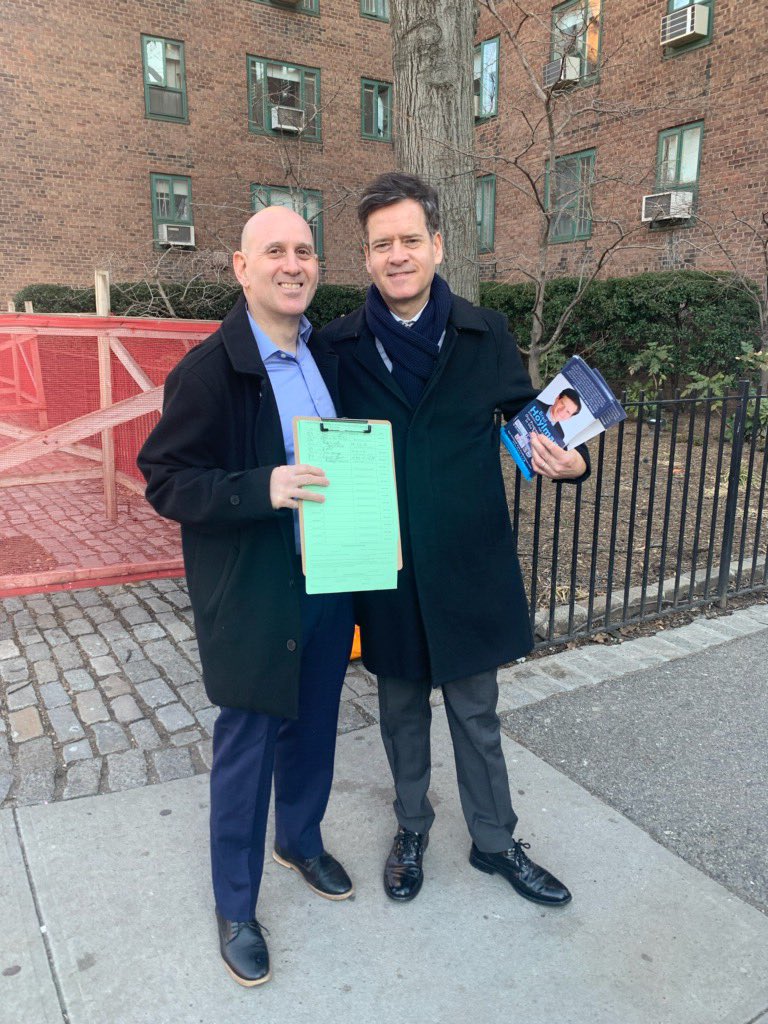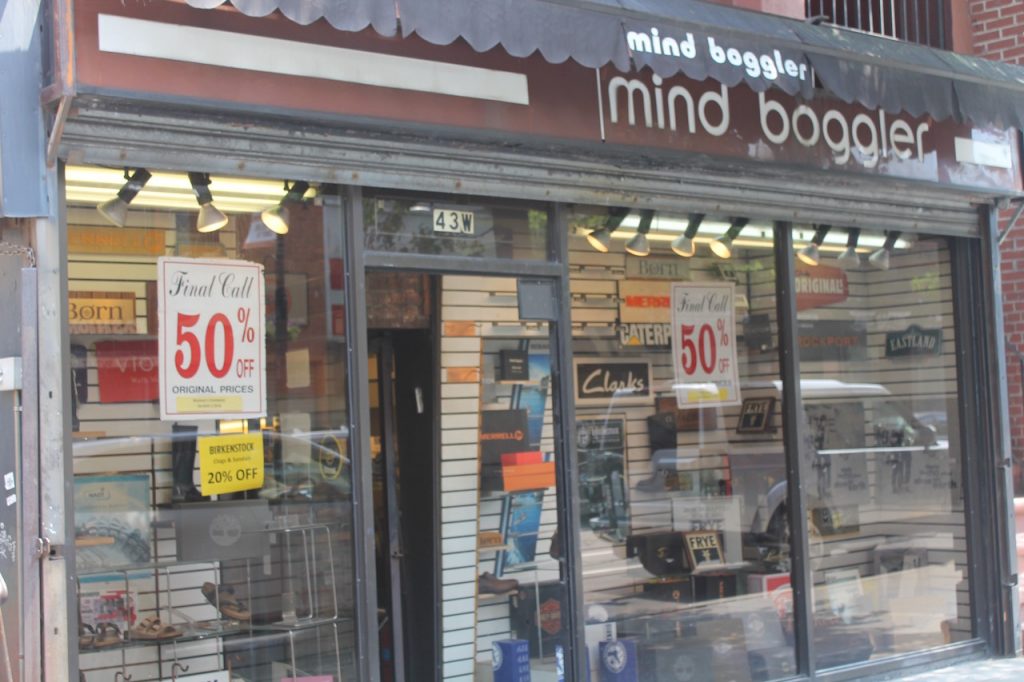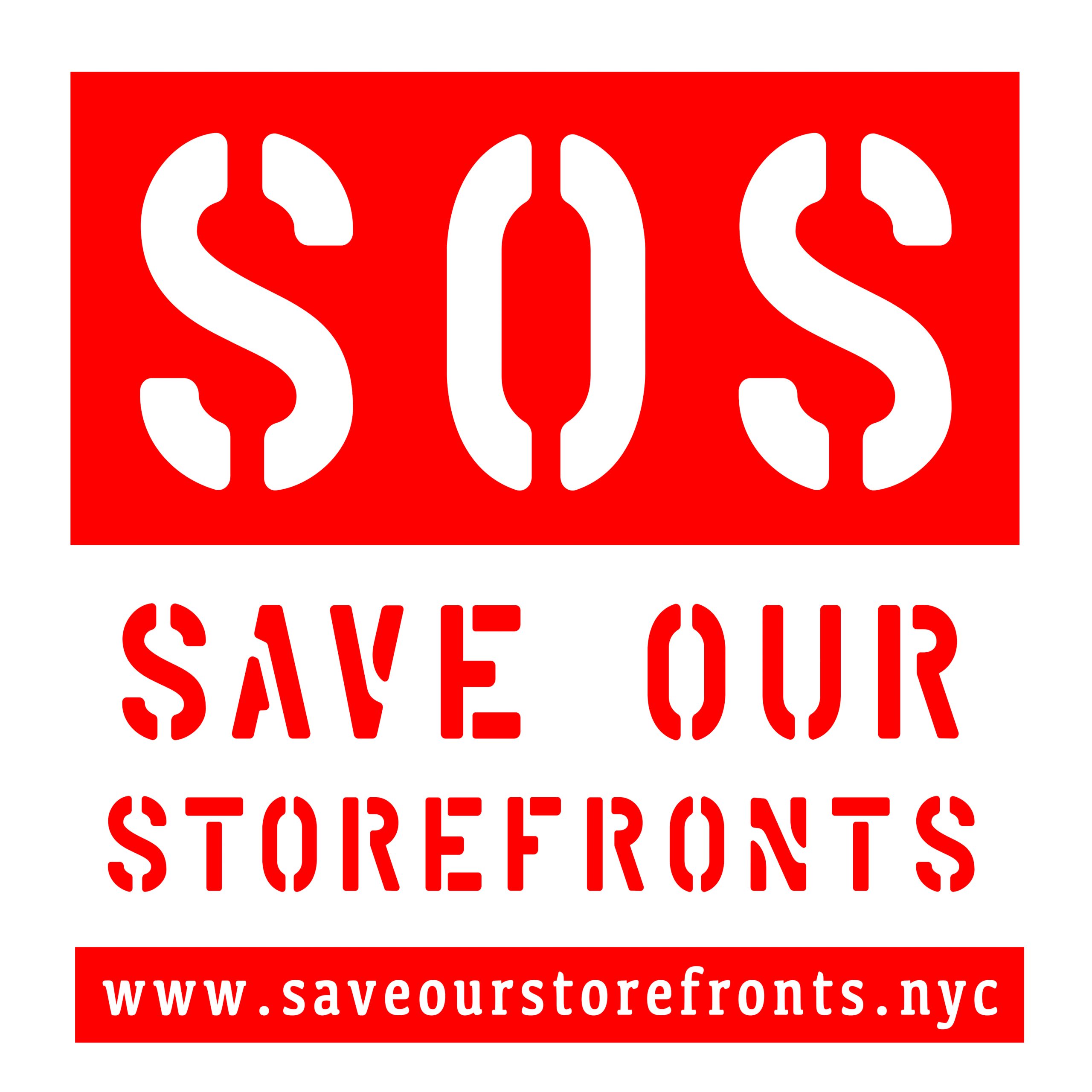BY THE VILLAGE SUN | Give them a break already!
Small businesses and nonprofits trying to survive the crushing coronavirus pandemic are still hoping a commercial rent relief bill unveiled earlier this summer will see the light of day and become law.
The measure was introduced in Albany by Assemblymember Harvey Epstein and State Senator Brad Hoylman and is currently in committee.
The idea behind the legislation is simple yet, at the same time, radical — to create a path to recovery by having landlords and commercial tenants “share the burden” of the crisis.
The pandemic and the New York State on PAUSE closures and restrictions have wrought havoc on mom-and-pop stores, pushing many to the brink, if not already out of business.
Already the losses, just to name a few well-known names, range from historic businesses, like Chumley’s, on Bedford St., and Gem Spa, on St. Mark’s Place, to local staples like the Good Stuff Diner, on W. 14th St.
“Federal funds have been slow to reach struggling small businesses,” Epstein said. “And, in some cases, owners have missed out entirely, especially business owners of color and specifically black-owned businesses in my district. We have heard overwhelmingly that the inability to pay rent is small business owners’ greatest existential threat. We need a state solution to save these businesses, and one that shares the burden between all stakeholders: tenants, landlords and government.”
“Small businesses and not-for-profits are the lifeblood of New York,” Hoylman said. “This is the crisis of our lifetimes, and just as New Yorkers came together to flatten the curve of COVID-19 transmission, it’s going to take cooperation and shared sacrifice among the business community, landlords and the government to avoid a future where our neighborhoods are littered with empty storefronts and For Rent signs.”

An analysis by the Association for Neighborhood and Housing Development found that 26 percent of all jobs in New York City are in businesses with 20 or fewer employees.
First promoted about a month ago, the bill is being pushed by Save Our Storefronts, or S.O.S., a coalition of merchants and community groups, including the East Village Community Coalition, Cooper Square Committee, East Village Independent Merchants Association, Soho Village Merchant Association, Village Preservation, League of Independent Theater and Cooper Square Mutual Housing Association.
Anthony Donovan, an S.O.S. coalition member, called the bill a “win-win-win” since it would benefit not just mom-and-pop shops, but landlords and Albany, too.
“We are losing our dear, hard-working neighboring small businesses each and every day,” he told The Village Sun. “Precious community is disappearing. We have two urgent bills now that will stop the hemorrhaging. The bills are both fair to all, and practical, and keep our small businesses open. They support especially those landlords in need, and keep a flow of revenue going to the state. Small businesses, landlords and the state all share the responsibility and the burden — and also the solution. This is a win-win-win to get through this challenging time.”
Under the bill, a small business or nonprofit — so-called “covered tenants” — with 25 or fewer full-time employees that has suffered a demonstrable loss in income due to state-mandated closures or restrictions would affirm its losses to the New York State Department of Financial Services.
Once verified by D.F.S., the covered tenants would qualify for rent relief: They would have the option of paying their landlords whichever is less — either 20 percent of their actual revenue or one-third of the contractual rent per month.
The bill would create a “covered period” starting March 7, 2020, and ending when the PAUSE executive orders curtailing businesses’ activities are fully lifted. Covered tenants would get the rent relief during the covered period, plus an additional 180 days post-PAUSE.
Meanwhile, during this period, the landlord would waive 20 percent of the contractual rent. An impacted landlord would be eligible to apply to D.F.S. for the lost income beyond the 20 percent. Expected federal aid would be dedicated to establishing a D.F.S. program providing relief to tenants and landlords.

Although New York City has been slowly reopening, obviously things are not back to normal yet. And the negative economic impact of the pandemic and PAUSE can’t just be wiped away.
In short, local merchants continue to say rent relief is the key to their survival at this critical moment.
“I think that rent relief is necessary to maintain our storefronts, to maintain our neighborhoods, to maintain peace and sanity,” said Abby Ehmann, owner of Lucky on B bar. “If all of these stores wind up bankrupt, we’re going to have no neighborhoods left, there’s going to be an increase in crime, in homeless encampments, and in doom and destruction.”
Charles Branstool, the proprietor of Exit9 Gift Emporium, on Avenue A, for more than 25 years, warned that, without rent relief, lots of businesses won’t bounce back.
“Many of us have been negatively affected by COVID,” he said. “Most businesses that I know, including myself, completely shut down operations. It’s not enough to survive the drain that rent payments are having on our financial reserves. Without rent relief, many businesses will close, which of course will lead to an increase in vacancies.”
“I had to close for four months because of COVID,” said Maegan Hayward, of East Village Vintage Collective. “And since my store offers a very in-person shopping experience, I wasn’t able to recoup my losses through online sales, so we’ve taken quite a beating. I’ve paid my rent the entire time, but it’s basically wiped out my entire savings. So rent relief is something that needs to happen in order for me to stay in business.”
Jimmy Carbone, owner of Jimmy’s No. 43 bar and restaurant, on E. Seventh St., suggested the Federal Emergency Management Agency get involved.
“There needs to be some form of rent relief,” he said. “FEMA should send money to struggling businesses to offset their rent, or landlords should get some sort of rent relief that is passed on to small commercial tenants. We are seeing many small businesses close — then the landlords try to rent at a reduced rate. Why not work together now in the midst of a national crisis?”
Natasha Amott, the owner of Whisk kitchen-supply store in the Flatiron District, had to shutter one of her other two Whisk stores in Brooklyn due to COVID-19 and rising rent.
“It is unacceptable that the state and federal governments are still so silent in moving to action for commercial rent help,” she said. “Small businesses and landlords needed assistance months ago. This city’s communities are hurting and our elected officials must absolutely find the urgency to react.”
Andrew Berman, executive director of Village Preservation, said merchants have been following the rules, but now — due to lack of government assistance — are paying a price.
“Small businesses and nonprofits in our neighborhoods and across the city are closing up shop permanently at an alarming rate, many because they are dutifully obeying public health directives,” Berman said. “This will have a devastating long-term effect upon the economic and social health of our communities, and we must do more to reverse this trend. Clearly, rent relief is one way, and ensuring that the burden is shared by the small businesses/nonprofits and the property owner, with robust government aid making up the shortfall, is a fair and reasonable way to do so. We need to act soon: Many of these losses are irreversible, and steps must be taken before the wave gets even bigger.”
S.O.S. is asking for signatures on a petition in support of the bill.
In addition, Village Preservation has its own page for people to write letters of support for the bill to the governor and state lawmakers.
On Wed., Sept. 16, from 3 p.m. to 4 p.m., there will be a legislative briefing about the S.O.S. measure. This will mainly be an outreach to assemblymembers and state senators to try to build support for passing the legislation. Others may attend, though space is limited, so an RSVP is required.


Commercial rent control is needed.The lack of same has already put many enterprises out of reach or out of business.